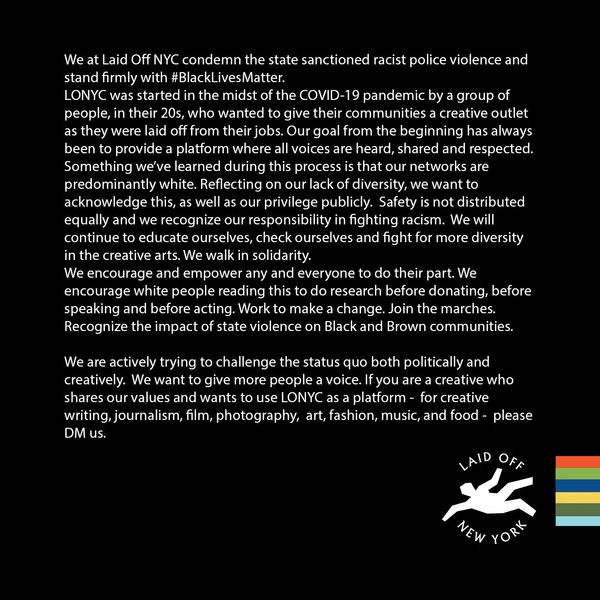by Emma Keates
I am going to tell the truth. Because that is the only way to talk about Richard Edwards.
The truth is that it is nearing midnight, and the sunset today was early and unremarkable; it is that I’ve tried approximately ten different openings for this piece, and absolutely none of them have worked. For over a decade, Edwards has enclosed himself within an increasingly distorted catalog of revision, reflection, and re-re-re-release. He is one of the most interesting and impenetrable songwriters I have ever encountered. I have been carrying his words with me in various ways since puberty, but I’ve never found a way in.
Because the truth is, really, that Edwards knows a lot more about isolation than most of us, even now.
First, a little history:
From 2004 to 2014, Edwards fronted the moderately successful Indianapolis-based indie rock band Margot & The Nuclear So And So’s. Margot only ever had one real hit—2008’s “Broadripple Is Burning,” a tender and weird ode to lost urban glory, sleepless nights, heartbreak and loneliness. Standard midwest emo fare.
Except that it isn’t. No other brain could have conjured lyrics like “and I wrote this on an airplane / where the people looked like eggs / and when a woman that you loved was gone / she was bombing East Japan,” or, “And if my woman was a fire / she’d burn out before I wake / and be replaced by pints of whiskey, / cigarettes and outer space.”
“Broadripple Is Burning” is Edwards’ “Creep.” In an oral history of the song for Indianapolis Monthly, Edwards claims that he “hated the song almost instantly” and “instruct[ed] the band to try and murder it, or at least strangle all of the longing and vulnerability out of it.” His favorite thing about the song is that “it’s rendered that neighborhood [of Broad Ripple] fiction. I love when people who love the song pilgrimage there and are totally let down.”
Edwards has also released seven distinct versions of “Broadripple Is Burning” on six different albums throughout his career. So, I cannot help but feel a little skeptical when he claims, in the Indiana Monthly interview, “I don’t ever think about [the song].” Radiohead may have written a diss track about their own number one hit, but then they put it to bed. What they decidedly didn’t do was re-record it six times.
Apart from his detached emotionality and obtuse writing, this drive toward incessant recursion is what makes Edwards so difficult to capture. Margot & The Nuclear So And So’s are technically defunct as a band, but their catalog feels both endless and ephemeral, as if none of their work will ever be complete. Their songs contain no past, present, or future. They are never still. Instead, they enter the world on an infinite conveyor belt, one that makes it very challenging to appreciate any Margot album as a finite piece of art.
Reinvention is endemic to the indie rock scene. Conor Oberst of Bright Eyes has fronted eight different bands throughout his career, not including his solo work. Ben Gibbard, three. But for these artists, reinvention signified growth and creative renewal: an extrication from the shackles of past sound. For some reason, this same impulse led Edwards to cannibalize his career.
Sitting down to write this review, I attempted to index the number of songs that appear on more than one of his albums but quickly came to terms with the fact that this would be nearly impossible. Even I, as a years-long devotee, have never had the energy nor, frankly, the interest, to sit down and listen to them all.
There are A-sides and B-sides, demos, acoustic sessions, live albums, something called a “living room version,” a 58-song tome of “Margot Rarities” from 2015, a film soundtrack that’s really just a full-album re-record of 2014’s Slingshot to Heaven, and the infamous 2008 double release of Animal! and Not Animal, a twin album set with slightly different tracklists due to a dispute with the band’s label.
And now, there is Richard Edwards Sings the Margot & The Nuclear So And So’s Songbook in Quarantine (Volume 1), an album that appears – at least on the surface – to be more of the same. Just another vaguely solipsistic romp through the history of a band no one really listens to anymore in the first place.
But this time, the stakes are different. And to understand why, we need to peel back a little more of Edwards’ personal history.
Margot officially disbanded sometime around 2014. At this time, Edwards had been dealing with an incredibly painful and potentially fatal stomach infection – one that he aptly termed “rot gut” in the title of a 2012 release – and it was getting worse. “The tour was a walking nightmare… I was thinking about blowing my brains out,” he told Adam Vitcavage.
He would later be diagnosed with Clostridioides difficile (C diff), the type of disease you hope to only encounter in the warning videos of a food-safety course. Around the same time, he and his wife filed for divorce.
Then, in 2017, Edwards reemerged with an album so vulnerable, so diaphanous and raw, that it still feels almost indecent to listen to it.
Lemon Cotton Candy Sunset is the first album Edwards released under his own name, and it sounds at times as though he simply pulled his diary off the shelf and set it to music. The lyrics are confessional and directly referential. “‘Cause in the next life there ain’t no stomachs / and love don’t die” is not a lyric that would have appeared on Animal! or even Not Animal. Gone are the people that look like eggs, the B-sides, and the choked longing. Even his voice sounds different. All that remains is a stark portrait of a man in pain, profiled as he is on the album’s cover, under a clear and endless pastel sky.
And then, in the album’s final seconds, the sound of surf fades out, a door swings open and closed, and a man says a resigned “hello” to the familiar claustrophobia of his indoor world.
Richard Edwards understands isolation, in a manner that feels almost eerily prescient when reviewed in 2022. Lemon Cotton Candy Sunset is Edwards’ real quarantine album, and in it we can see echoes of much of the work that has become associated with the anxieties of the early COVID era.
The album’s scintillating anger, muttered interlude tracks, and interweaving of ambient household noise is reminiscent of Fiona Apple’s Fetch the Bolt Cutters. Bo Burnham mirrors the album’s ending in the closing shot of his Netflix special, Inside, as the camera pans out to reveal that the comedian’s attempt to exit his quarantine was merely a ruse, leaving him as trapped as ever. Edwards’ trajectory can even be seen to parallel Taylor Swift’s – another artist whose work has become increasingly plagued by narcissism and self-referentiality. Like Lemon Cotton Candy Sunset, Swift’s 2020 twin albums folklore and evermore settle over the listener like a lyrical detox. They contain the type of creative rebirth only possible when everything else goes silent.
If Lemon Cotton Candy Sunset provided an early roadmap for those surreal and charged first few months of 2020, then Richard Edwards Sings the Margot & The Nuclear So And So’s Songbook in Quarantine (Volume 1)—we’ll just call it Sings from now on—is closer to a reflection of the way things are now, our loneliness calcified into the “new normal.”
Like Edwards in 2017, the world is still in the process of grieving a collective psychic break caused by a terrifying and chronic illness. While we used to harbor high hopes for a new and better system to rise from the ashes, we are now in varying stages of returning to, revising, and re-evaluating old habits and histories—something Edwards is, of course, intimately familiar with.
Some of these new songs work better than others. Stripped of its Margot-era bombast, the album’s opener, “NYC Hotel Blues,” transforms from a forgettable mid-album rock anthem into a heartbreaking plea to preserve the last gasp of a dying relationship. “Coonskin Cap,” on the other hand, suffers from a misguided new piano accompaniment that makes the song sound like an amateurish recital piece.
But these distinctions don’t feel all that important because Sing—like most of Edwards’ solo work—is not entirely for us in the first place.
“One of the things I miss about touring is how older songs can receive a fresh coat of paint every night,” Edwards writes in the album’s Bandcamp bio. “Me and my buddies thought it might be cool to imagine we were heading to a town for a one night only engagement. We’d perform some Margot songs in a manner that felt more or less true to the people we are now. No history. As if they’d never been done before. Far out.”
There is no such thing as “no history” in Edwards’ world. This is not even his first re-record as a solo artist. The “one night only” frame, though, is new, and useful here. These particular edits are bringing comfort and communion. They are a simple escape—a far-out little fantasy. The conveyor belt has finally been powered down.
Vinyl only captures one small snapshot—not a life, relationship, or disease. When the performance ends, the band is allowed to let whatever they have exorcized dissipate with the applause. These songs will never be played the same way again.

Emma Keates is a Brooklyn-based writer and pop culture obsessive. She is currently pursuing an M.A. in Cultural Reporting & Criticism at NYU. Get to know her better: @em_keates



